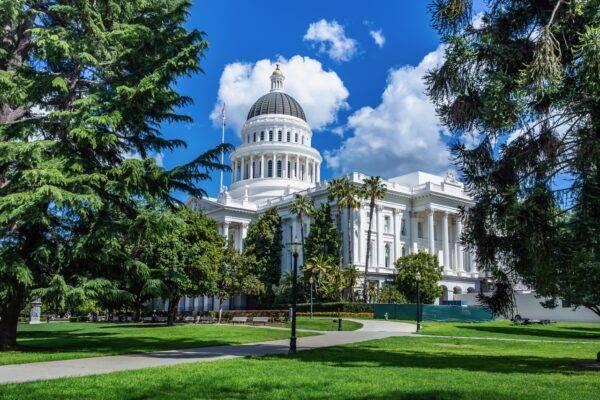Statewide — Facing a Sept. 13 deadline to pass and submit bills for the 2024–25 legislative session, California lawmakers advanced several key measures to Gov. Gavin Newsom’s desk.
Among them are five education bills that could bring significant changes to classrooms across the state if enacted.
The Governor has until Oct. 13 to sign or veto all legislation. The bills that Newsom does not veto before that deadline will automatically become state law.
Here are five education bills you should know about.
More California-Centered Black History
SB 510 (Sen. Laura Richardson, D-Inglewood) – This bill requires the Instructional Quality Commission to consider including content on the historical, social, economic, and political contributions of African Americans during the Spanish colonization of California, the Gold Rush Era, and Antebellum periods.
“SB 510 ensures that students learn about the economic, social and political contributions of African Americans, as well as their resilience in the face of systematic oppression,” said Richardson in support of the bill. “By including African American perspectives in the broader context of history, economics, and civics, the bill helps foster greater understanding of the ongoing fight for equity and justice.”
Richardson’s bill is one of the pieces of legislation included in the California Legislative Black Caucus’ (CLBC) “Road to Repair” bill package.
Currently, most textbooks and other instructional materials often minimize or exclude the contributions of African Americans.
Supporters say, this legislation would help to make history instruction more accurate and inclusive.
SB 510 was signed by Gov. Newsom on Aug. 28.
Easier Admission for Graduating Seniors to CSU Schools
SB 640 (Sen. Christopher Cabaldon, D-Napa) – Qualified high school students who have taken the required courses and maintained an appropriate grade point average will receive mailers directly admitting them to participating CSU campuses.
“We should make it as seamless for our students to go from 12th grade to the next stage of their education as it was for them to go from sixth grade to seventh grade,” Cabaldon said in a release. “Direct admission removes the application hurdle that stops some students from going to college and relieves the fear that they won’t get in anywhere.”
This legislation aims to make it easier for students to apply to CSU campuses, as navigating the application process has proven to be a barrier to entry for some qualified students.
After the Legislature approved the bill on Sept. 10, the Secretary of State’s office enrolled it and presented it to Gov. Newsom for his consideration on Sept. 22.
Ban on Ultra-Processed Foods in California School
AB 1264 (Assemblymember Jesse Gabriel, D-Encino) – This bill requires the Office of Environmental Health Hazard Assessment to develop regulation to ban ultra-processed foods (UPFs) in schools. UPFs are defined as any food or beverage high in saturated fats, sodium, or specific added sugars or sweeteners.
“Our public schools should not be serving students harmful ultra-processed foods filled with dangerous chemical additives,” said Gabriel. “In California, Democrats and Republicans are joining forces to prioritize the health and safety of our children and we are proud to be leading the nation with a bipartisan, science-based approach.”
The bill text requires schools to start phasing out these foods by Jan. 1, 2028. A complete ban would start July 1, 2035, excluding food served at school fundraisers.
After the Legislature approved AB 1264 on Sept. 12, the Secretary of State’s office enrolled the bill and presented it to Gov. Newsom for his consideration on Sept. 24.
More Teaching Days for Subs in Public Schools
AB 1224 (Assemblymember Avelino Valencia, D-Anaheim). This bill increases the days a substitute teacher can teach in California public school classrooms from 30 to 60 in general education and 20 to 60 in special education.
“The increased flexibility will reduce classroom instability and learning disruptions that affect students with disabilities the most,” said Valencia in a release. “With greater stability in the classroom, students are able to establish rapport with their substitute teacher, leading to better educational outcomes.”
With California’s continued teacher shortage, proponents of the bill highlighted the need for continuity between teachers and students in hard-to-fill subject areas including special education, math and science.
On Sept. 22, the Secretary of State’s office enrolled the bill and presented it to Gov. Newsom for his consideration after the Legislature approved it on Sept. 10.
Improving Curricula and Training to Boost Reading Skills
AB 1454 (Assembly Speaker Robert Rivas, D-Salinas) – This bill updates statewide reading instruction curriculum to close learning gaps. It also requires the State Board of Education to adopt instructional materials that align with evidence-based means of teaching foundational reading skills and updates training standards.
“Strong reading skills are the foundation for every student’s success, and our action today demonstrates a big commitment to improving California’s reading and literacy rates,” said Rivas in a release. “This legislation is a critical step and will improve literacy outcomes for California’s students.”
The proficiency gap in reading between Black and Hispanic students in California compared with white and Asian students is among the widest in the nation.
On Sept. 24, the Secretary of State’s office enrolled the bill and presented it to Gov. Newsom for his consideration after the Legislature approved it on Sept. 13.
___________
Article By: Edward Henderson, California Black Media






